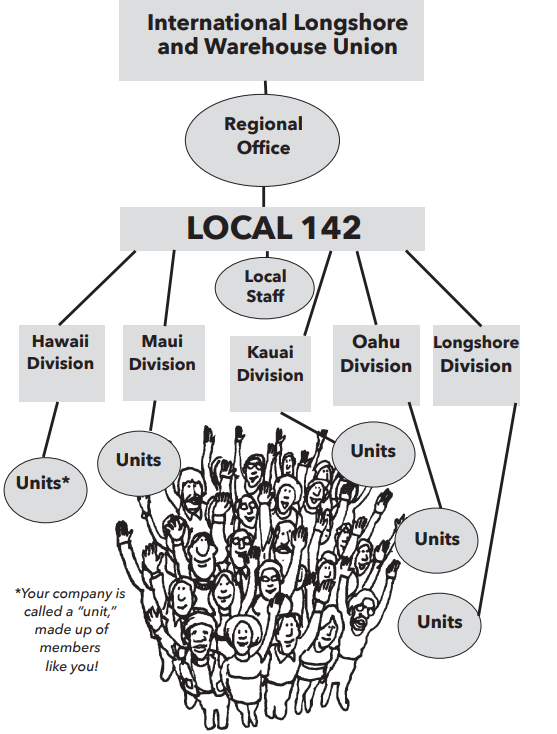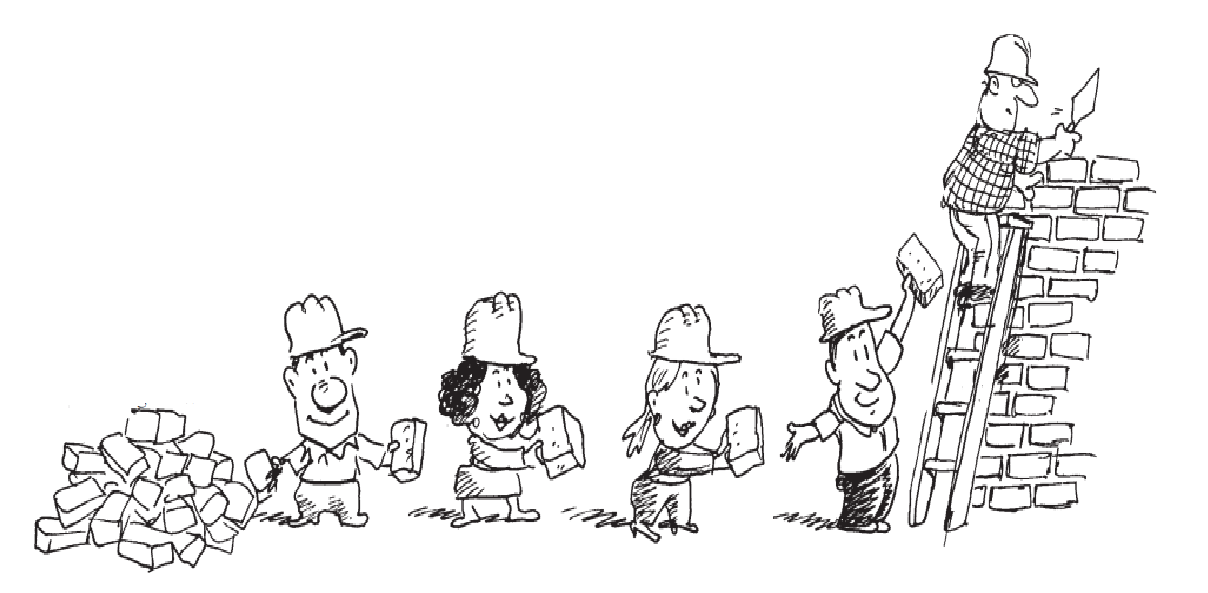Most workers organize into unions because of bad working conditions and poor treatment by management. When workers are organized into unions, they gain the power to change their working environment and demand respect and fair treatment from management.
With a union, workers have job security. They can no longer be fired, transferred, or demoted at the whim of their bosses.
In the United States, workers are hired “at-will.” This is a term that means workers are not slaves and can quit their job at their choice, or at their own will.
But by that same token, an employer can fire a worker for any or no reason — or at the employer’s will.
U.S. and Hawaii law only protects a worker from being fired for an illegal reason — such as discrimination by race, sex, age, religion, sexual orientation, ancestry, disability, marital status, or arrest and court record.
However, unionized workers have a written contract which gives them additional protection against unjust or unfair firing or treatment on their job.
With a union, workers gain the power to meet with management on equal terms and bargain collectively to improve their wages and benefits. Union workers no longer have to go to their boss as individuals and beg for an increase in wages. With a union, workers have a voice on the job because management is required to negotiate with them on any changes in the terms and conditions of employment.
With no union, management can take back benefits and change things on the job at any time with neither notice nor consultation with workers
Unions give workers dignity, respect, and a voice on the job. Many workers consider these to be the most valuable benefit of having a union.

You have rights on the job
As a member of a union, you have rights on the job. With the ILWU you have the combined strength and experience of the union on your side.
Weingarten Rights
If you are called into a meeting with management and you believe the meeting may lead to disciplinary action, you have a right to ask for a union representative. This right is called your “Weingarten Rights.”
Once the member asks for a union representative, the company should stop the discussion, and the member should not answer any more questions.
The company can call any steward available -- the member cannot insist on a particular unit officer or business agent. When a union steward arrives, the member should consult with the steward first, but the company can continue the questioning.
“Work first, grieve later”
You have the right to have a union steward or business agent help you with any problem on the job.
Members should be advised to “work first and grieve later.” This means a member should obey their supervisor’s order and do the work, even if it is a violation of the contract, or unfair treatment. They could politely inform their supervisor that they will be seeing their union steward about the matter.
There are only three exceptions to this “work first, grieve later” rule:
1) if the job is dangerously unsafe, 2) illegal, 3) immoral.
In any of these cases, you should protest to the boss and offer to do something else. You still risk being disciplined for insubordination, but if the job was really unsafe, illegal, or immoral, the discipline will probably not be upheld.
Knowledge is power
You can read more about your rights and benefits under the union contract and the ILWU Constitution and Bylaws. Copies are available through your unit officers or business agent.
Additionally, every Division has a Division Executive Board (DEB) meeting usually every month, which is open to all members. Call your Division office to find out when your next DEB meeting is scheduled, or if you have any questions!
Hawaii: 935-3727;
Maui: 244-9191;
Kauai: 245-3374
Oahu: 949-4161;
Longshore: 949-4161

